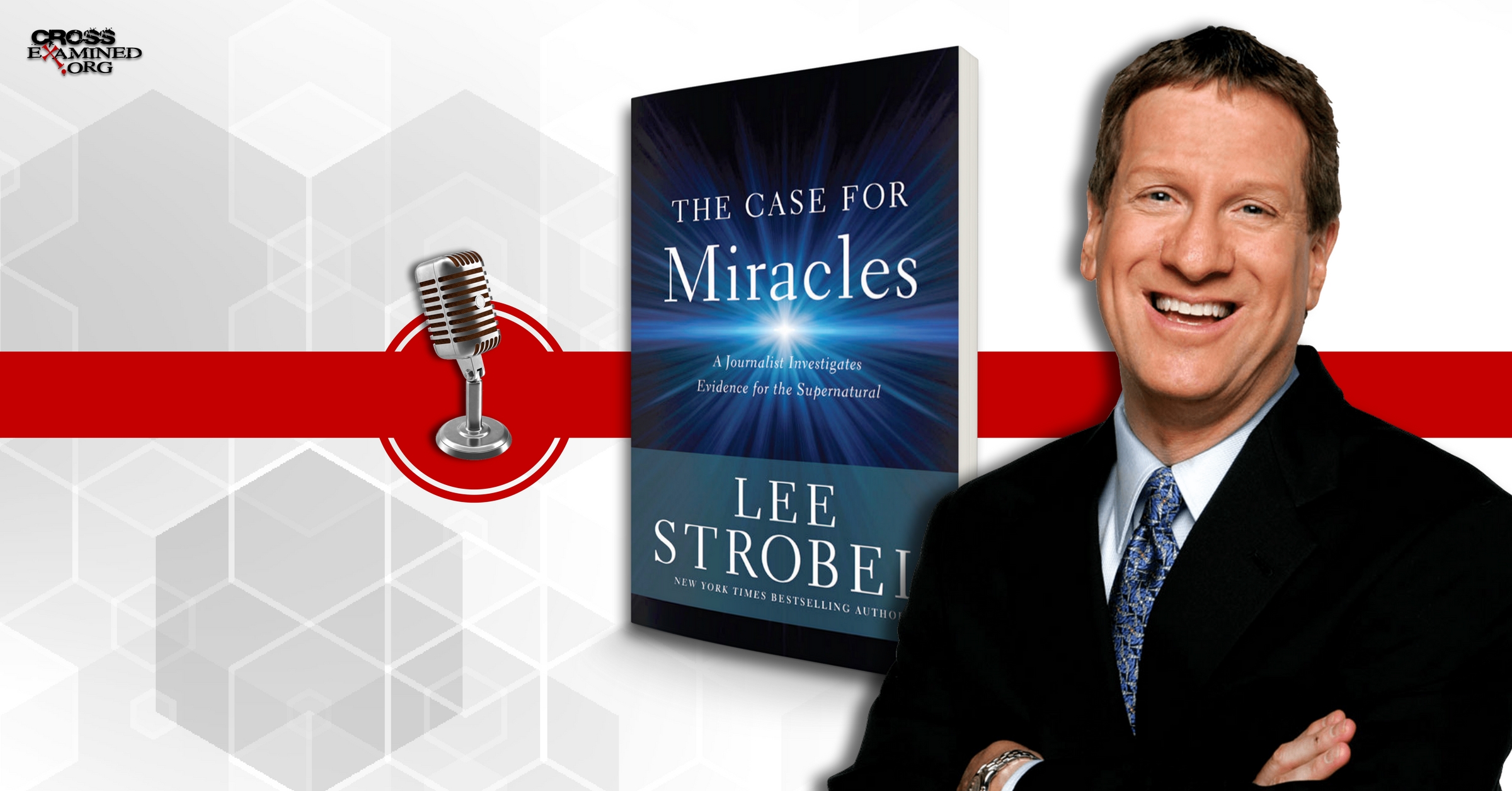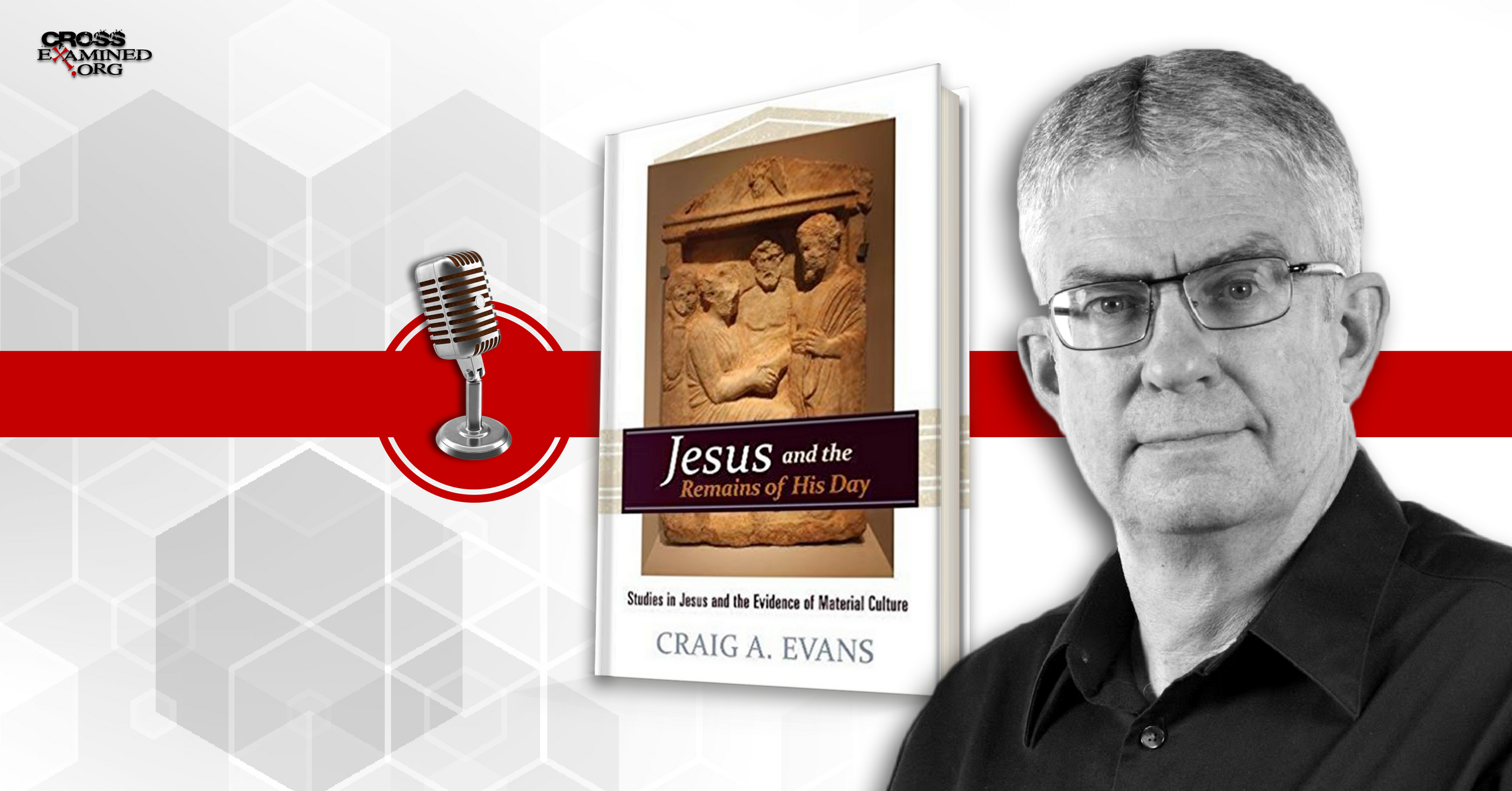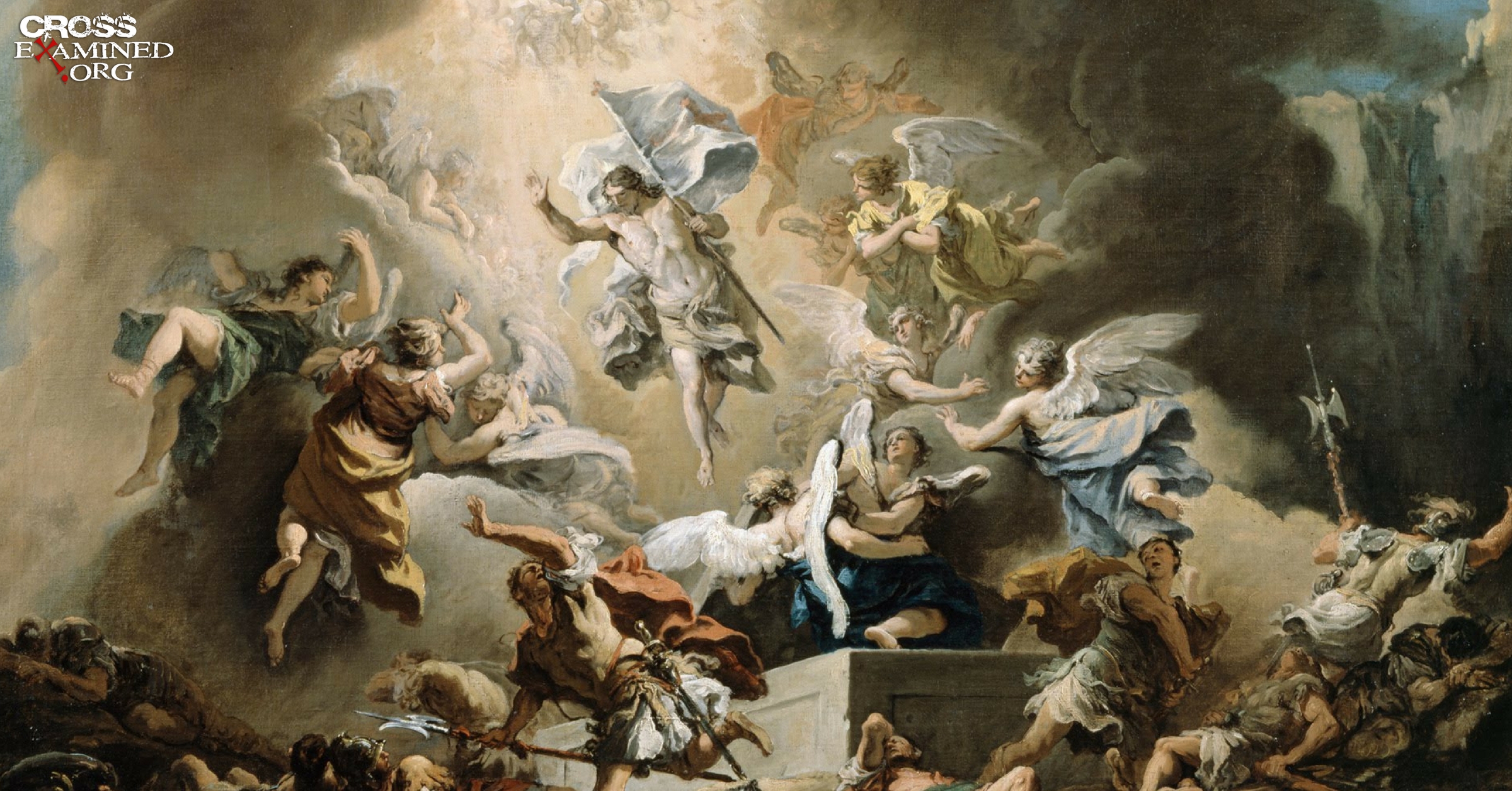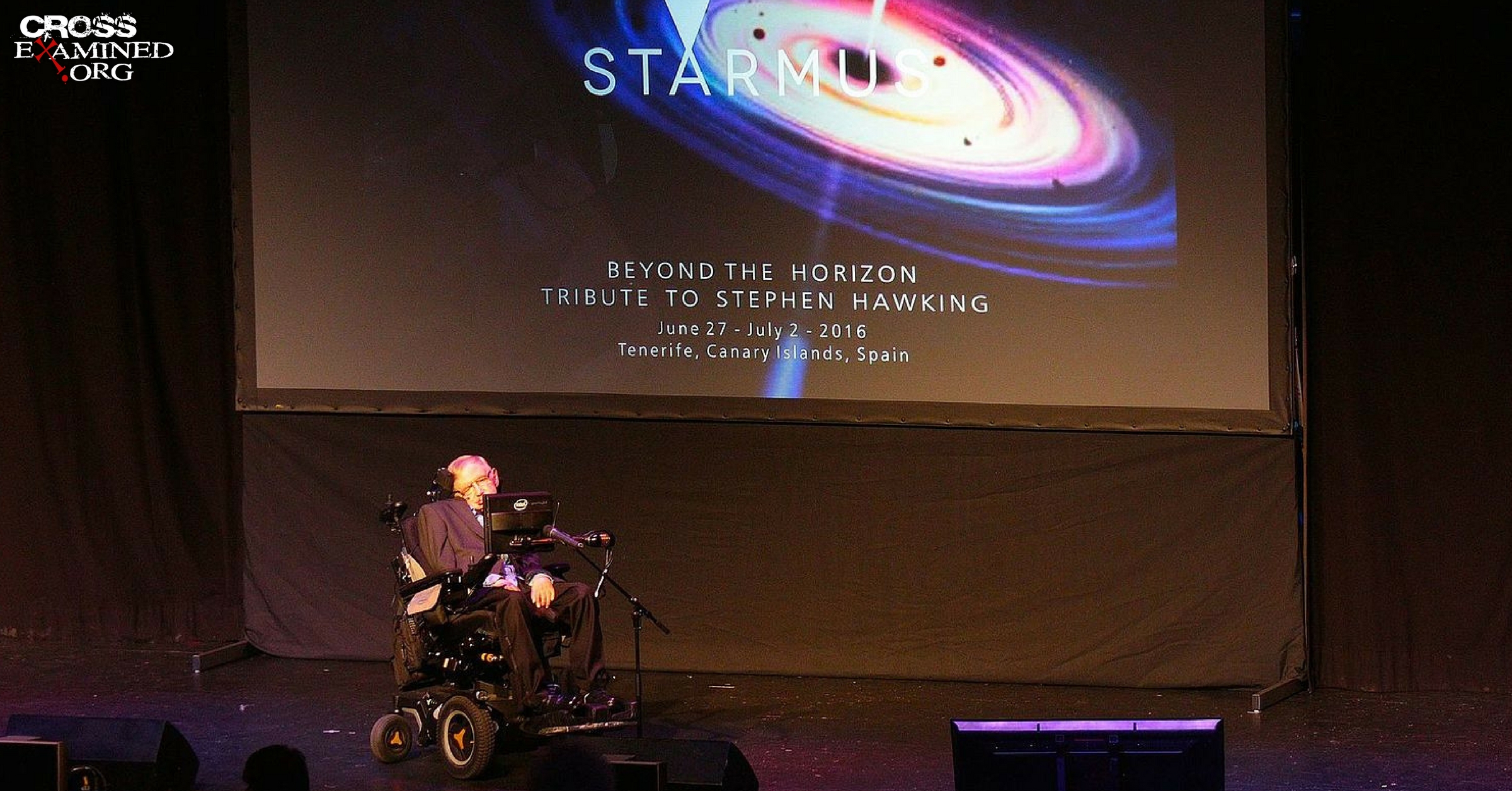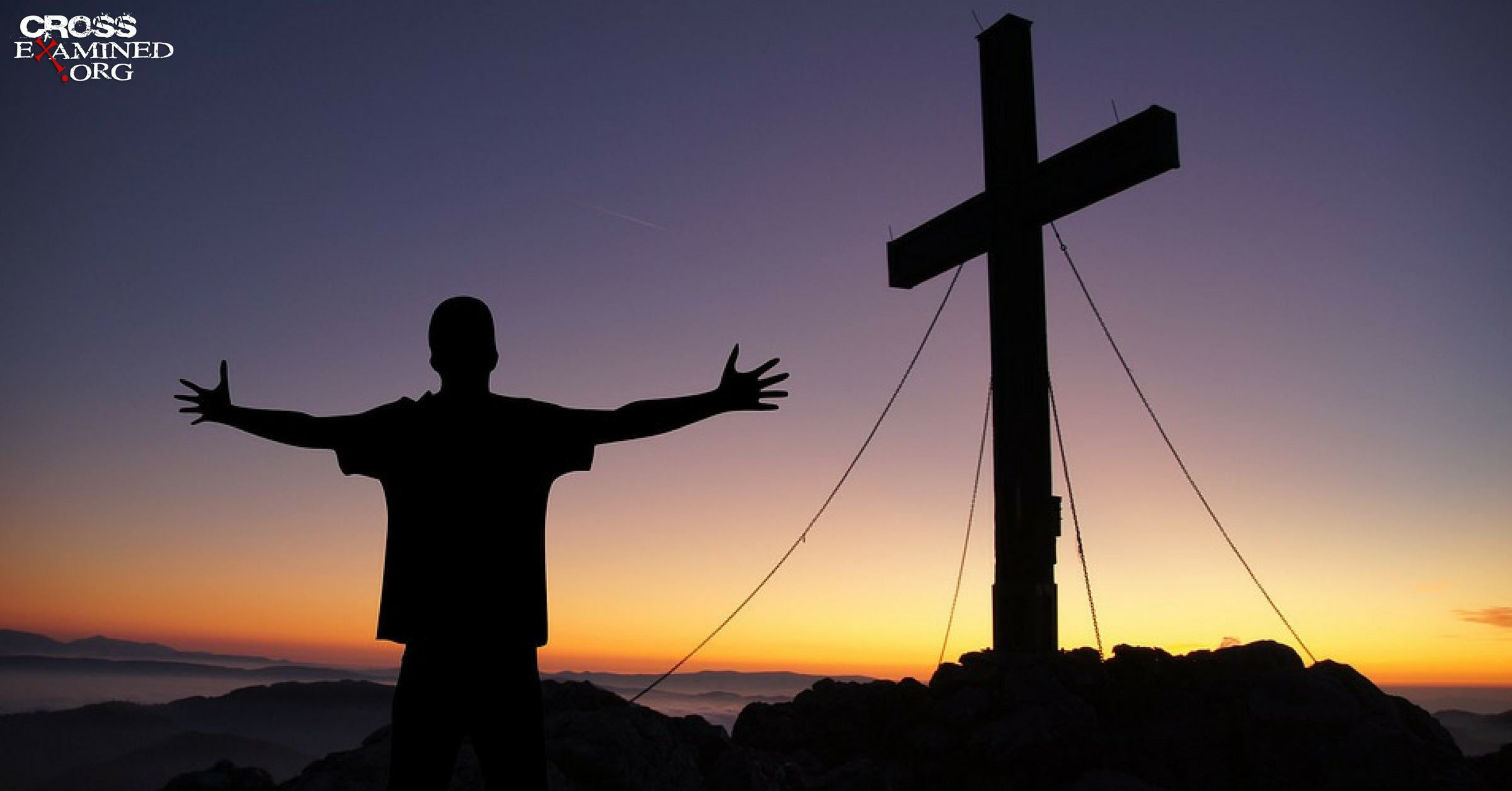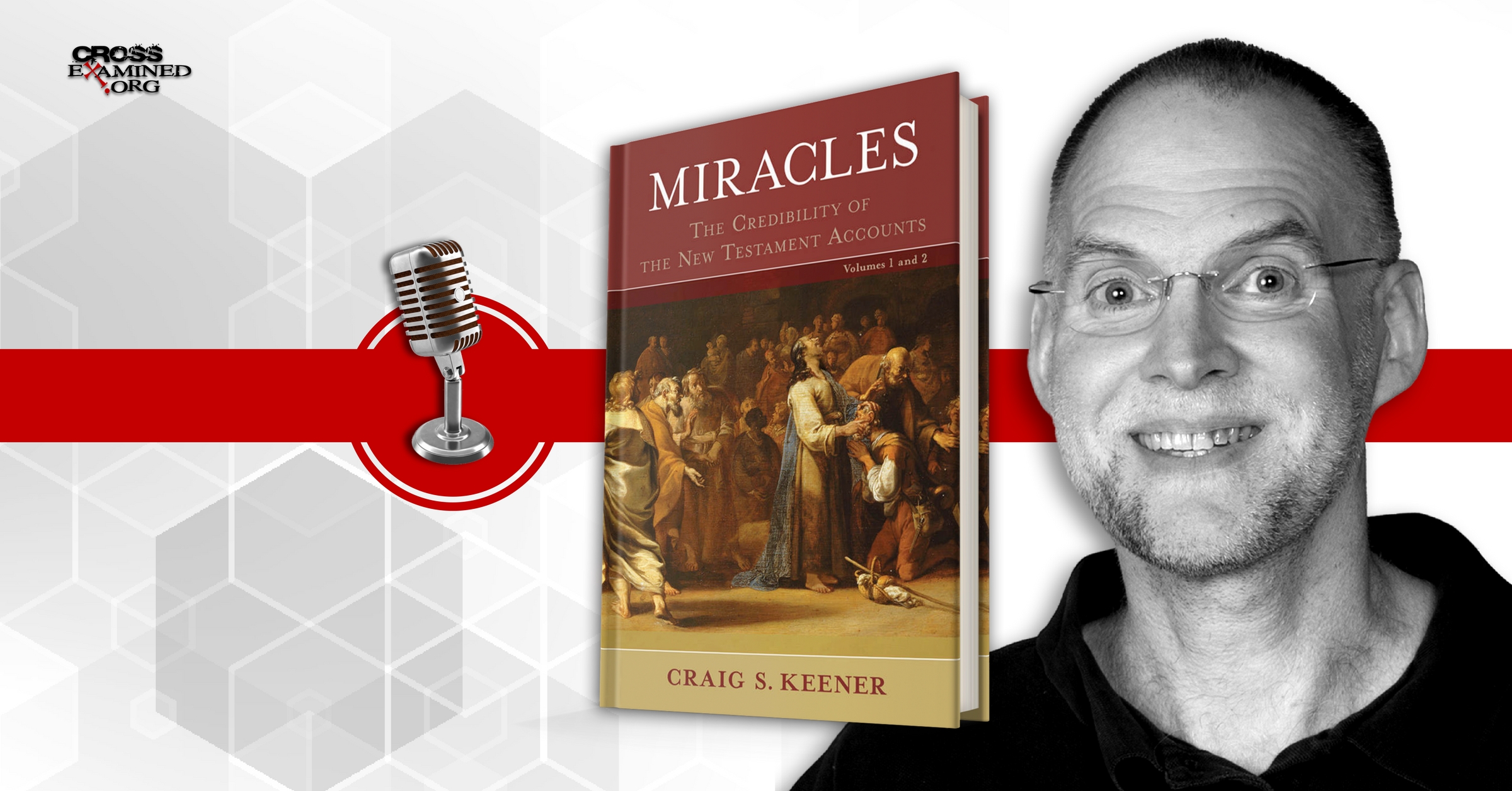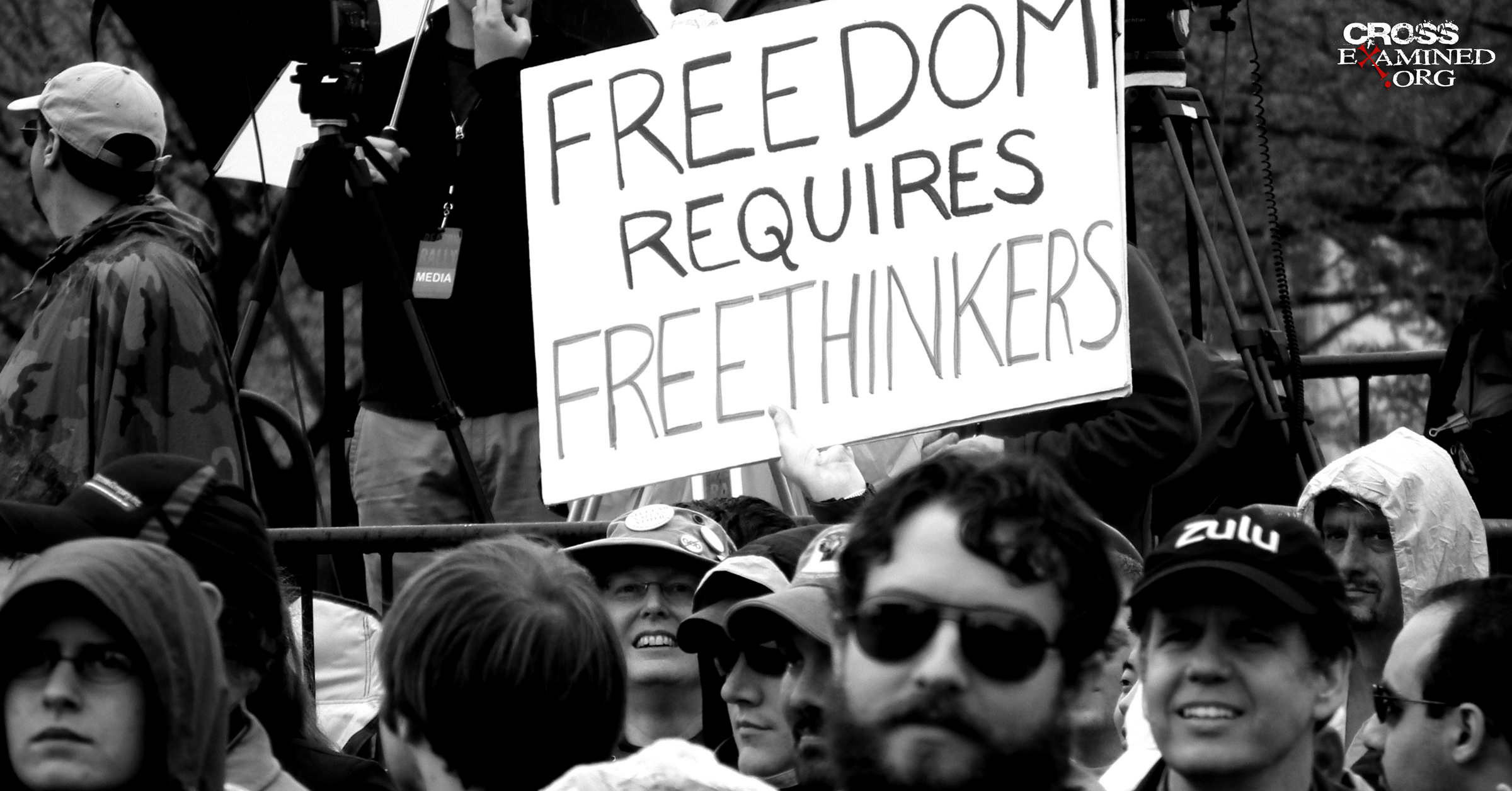By Tim Stratton
While attending Biola University, Dr. Clay Jones gave me the assignment to engage in friendly and respectful debate with a skeptical non-believer regarding the historical resurrection of Jesus. A deep-thinking friend of mine (who happened to be an atheist who would debate my views quite often) graciously accepted my invitation to have this conversation. The following is my conversation with Justin.
I am humbled and honored to have a friend like you, Justin! Thank you!
My initial case
Dear Justin,
Thank you for having this conversation with me! Please feel free to take your time when responding. I will try to get back to you within one week after each of your responses. I will be making a case that we have good reason to believe that God raised Jesus from the dead. To accomplish this task, I will not begin with the assumption that the Bible is the Word of God; rather, I will begin by treating the 27 books of the New Testament as they were originally written – as individual historical narratives.
All of Christianity hangs on the Resurrection! Even the Apostle Paul realized this and said, “If Christ has not been raised, then our preaching is in vain” (1st Corinthians 15:14). That is to say, if the Resurrection did not really happen, then Christians are idiots, and wasting their time on Sunday mornings! They should be out playing golf instead! However, if Jesus really did rise from the dead, then life has way more meaning than a game of golf!
Do Christians have good historical reasons to put our faith in Jesus? Can we really know what happened 2,000 years ago? When it comes to studying ancient history, we need to abide by the “Rules of Historical Research.” As Mike Licona has pointed out, to establish something of the ancient past as historical, we need to have multiple, and converging lines of evidence such as:
- eyewitness data
- closeness to the facts
- criteria
We don’t say, “Julius Caesar or Alexander the Great never existed!” In fact, we not only believe they existed, but we believe we actually know many things about them. When it comes to establishing historical data, it does not matter that something happened 2000 years ago — what matters is this: do we have access to an event that happened 2000 years ago? Licona has taught me that historians don’t just take one person’s word for it. They come to their conclusions through converging lines of evidence, such as:
– written
– pictorial
– inferential
– archaeological
– Etc.…
Again, no one doubts Alexander the Great, Caesar, or the history written about them. We have great historical reasons to conclude that we actually have knowledge of these individuals and many things they did. However, the sources confirming the historicity of these men, and their lives, are far inferior than the sources we have for Jesus! We not only have New Testament sources (27 individual historical documents collected into one volume) but even trained atheistic scholars and historians will go to the New Testament and use it for their purposes (I am treating it just as they do — I am not assuming anything special or supernatural about the Bible).
With this in mind, skeptical scholars will never say we cannot use the New Testament as a historical document — because it is a historical document — and it is recognized as such. Obviously, atheistic historians don’t conclude it is the inspired word of God, because, they don’t believe in anything “supernatural.” However, they conclude that the books that have been compiled into the Bible, are historical books written by people who lived a long time ago and who believed in God. These skeptics just arbitrarily choose to ignore the parts that have anything to do with the supernatural only because of their assumptions (blind faith) in naturalism (that nature is all that exists).
Moreover, on top of the many independent reports of the New Testament, we also have over a dozen non-biblical sources of Jesus within 100 years after his life! Every single one of them is NON-CHRISTIAN! Plus, we have archeological sources, and other Christian sources apart from the New Testament. When you compile all of this evidence together, it’s an incredible amount of historical evidence and information about the man, Jesus of Nazareth.
Justin, I know what you are probably thinking right now, “But how can you know anything about an event that happened 2000 years ago?”
When it comes to good history, the crucial time gap is not between the time of the event and today; the crucial time gap is between the time of the event and the evidence for the event! As William Lane Craig has pointed out, if the gap between the event itself and the evidence for the event is short, then it doesn’t matter how long the evidence and the event have receded into the past. Craig says,
“Good evidence does not become bad evidence, just because of the passage of time!”
Therefore, it’s irrelevant how long ago the Resurrection occurred. What’s critical is the GAP between the evidence and the event that the evidence is about! In the case of Jesus, that gap is extremely short.
Many volumes have been written providing evidence pointing to a historical resurrection of Jesus (from Josh McDowell to Lee Strobel, to N.T. Wright), but I want to offer some facts that a couple of my profs at Biola have been using in recent debates with famous skeptics. (I highly recommend the work of Dr. Michael Licona, Gary Habermas, and William Lane Craig when it comes to the evidence of the resurrection!) In fact, if you want to do your own study, I highly recommend a book by Michael Licona entitled, “The Resurrection of Jesus: A New Historiographical Approach.”
Let’s examine a little passage of scripture, with HUGE implications! Remember, I am only treating scripture as ancient history, nothing more! Consider this piece of evidence we find in the pre-biblical oral tradition that was handed down to the Apostle Paul, which he then records in 1 Corinthians 15:3-5:
3 For I delivered to you as of first importance what I also received: that Christ died for our sins in accordance with the Scriptures, 4 that he was buried, that he was raised on the third day in accordance with the Scriptures, 5 and that he appeared to Cephas, then to the twelve.
This creed states, “that Jesus was crucified to pay for our sins, and that He died and was buried, and that He rose from the dead on the third day and that He was seen by eyewitnesses.” It is obvious from the wording used in this creed that it did not originate with Paul, the author of 1st Corinthians. This is even accepted by the vast majority of non-Christian scholars, that Paul must have received this creed by someone else in Jerusalem (probably Peter and James) anywhere from two to eight years after the crucifixion.
Paul says, “I gave you what I was given!”
Since this saying already existed when it was first given to Paul, we can logically infer this creed was established even earlier, and therefore, these beliefs would pre-date the oral tradition itself, which amazingly brings us right back to the historical moment of the crucifixion of Jesus!
We have early documentation that hundreds of people saw the risen Jesus and gave testimony of this within months of his death. This provides warrant to believe that the claims stated in this creed are true. Moreover, we must also consider the illogicality of this creed being invented and accepted in the very town Jesus was reported to have lived in and was executed in, at the very time of His execution, if this Jesus story was just a myth. To understand how unlikely it is that such a thing could happen if Jesus had never actually lived, or the resurrection being a myth, imagine the following scenario provided by Amy Hall:
Suppose you decide you would like to start your own religion (because there’s a lot of money in it), so you invent the story of an amazing man named Hobart. You head off for Los Angeles and start proclaiming that just a couple of years ago, Hobart had, in that very city, done countless miracles and caused such an uproar that, eventually, the city officials got involved and held a public execution (on Venice Beach), but then Hobart—amazing as he was—rose from the dead and made numerous appearances around L.A.
How many followers would you get? Besides Tom Cruise, you would be lucky if you got one! Let alone thousands who would be willing to die for this story!
Everyone in Los Angeles would remember perfectly well that no such man had existed. You would never gain enough followers to get any sort of movement started. Such a plan is obviously ridiculous and doomed to failure. And yet, to claim that Jesus never existed, and the multiple appearances of the risen Jesus never happened, one would have to assume this very scenario occurred successfully in first century Jerusalem—a city with significantly fewer people than Los Angeles! This is not likely.
We can come to our conclusions through the multiple testimonies of people who were either companions of Jesus themselves and of other people who knew the companions of Jesus! This is fantastic and extremely EARLY evidence! When we look at the past to see what actually occurred, we look for multiple independent sources, eye-witness sources, early sources, embarrassing reports, etc… We have all of this in abundance when it comes to the Resurrection! In fact, as Mike Licona once told me,
“We have as much data that Jesus rose from the dead, if not more than we have of Julius Caesar’s crossing the Rubicon in 49 BC!”
The vast majority of the harshest, skeptical, and atheistic historians admit up to twelve things as historical fact about Jesus. These twelve facts create an overwhelming cumulative case for the Resurrection of Jesus. However, we only need three of the twelve to make a minimal case. For our purposes, I will use five to come to the conclusion that Jesus rose from the dead:
1- Jesus died by crucifixion.
2- Jesus’ disciples (at least) really believed that Jesus rose from the dead, and appeared to them.
3- The church persecutor and Christian hunter, Saul, was radically transformed into the Jesus preaching Paul.
4- The skeptic James (the brother of Jesus) was suddenly changed into someone who was willing to die for the Gospel.
5- The tomb of Jesus was found empty by his women followers.
These are the accepted facts regarding Jesus. So, as historians, we need to ask what hypothesis best accounts for all of these facts? The Resurrection hypothesis can account for all of them, and no naturalistic hypothesis offered can account for all of these together. I encourage you to come up with one.
To decipher the inference to the best explanation, we use the criteria of the historical method. The hypothesis that best meets all of the criteria is to be preferred and regarded as to what most likely (or probably) occurred. Here are the five points of criteria:
- Explanatory Scope
- Explanatory Power
- Plausibility
- Less Ad Hoc or Contrived
- It provides Illumination
With the criteria in mind, Mike Licona said:
“The MAIN objection to the resurrection, is not a lack of historical evidence (we have that); rather, it’s a matter of WORLDVIEW, because the resurrection of Jesus requires a Supernatural Being to exist.
If you consider my essay on the Kalam Cosmological Argument you will notice that we sound philosophical evidence — supported by the scientific data — that a Supernatural “Cause” of the Universe does exist! If we have evidence of a “Supernatural Cause and Creator of the Universe,” the resurrection of Jesus by this Supernatural being would be mere “child’s play!” Therefore, one has no grounds to reject the historical evidence in regards to the resurrection of Jesus.
What do you think, Justin? I look forward to your response.
Sincerely,
Tim
Justin’s first objection
Hey, Tim. Sorry for the late reply. I haven’t had that much free time as I work anywhere from 60-110 hours a week!
While reading your argument, something popped into mind. We do know about Alexander the Great. But, not as much as we think we know. Just like the possible life/death of Jesus. It’s written in the scripture that he died from the wounds, as a result of the crucifixion.
I ask you this question: Would it be possible that Jesus didn’t really die as a result? 1st century Jerusalem was not very medically advanced. So, it would be possible that the “examiner” would be wrong and placed his body in the tomb. When Jesus awoke, he left the tomb.
It’s not unheard of to hear about people being buried alive, as it happened all the way up to the early 1900’s.
Tim’s response
Those are very good questions, Justin! Is it possible that Jesus did not die as a result of the crucifixion? Is it possible that the Romans thought Jesus was dead when he was just completely “beat up?” Is it then possible that Jesus woke up in the tomb, and walked out?
As I mentioned in my original email, it is accepted as historical fact that Jesus was crucified; however, does this mean we can have certainty about his death? I agree with you, Justin, we have all heard of someone that has been declared dead, and hours later started breathing again. If this still happens today, how can we be sure it didn’t happen 2000 years ago? Let’s label this hypothesis as the “Apparent Death Theory” (ADT), and see how it stands up when compared to historical and medical research.
I think the ADT is highly unlikely, implausible, and NOT the inference to the best explanation for several reasons. First, when considering what we know about Roman scourging and crucifixion, survival seems quite implausible. In the March 21, 1986, issue of the Journal of the American Medical Association, a study was done on the effects of Roman scourging. I won’t bore you with all the details right now, but if you are interested in seeing what it was like, the movie, “The Passion of the Christ” seems to demonstrate quite accurately what a Roman scourging was like.
Something else to consider is that a scourging was just the warm-up! When it came to nailing a convict on a cross, each wound was intentionally inflicted to cause immense physical agony. The Journal reported that when the convict had his wrists nailed, “the driven nail would crush or sever the rather large sensorimotor median nerve. The stimulated nerve would produce excruciating bolts of fiery pain in both arms.” This would eventually lead to death by asphyxiation.
On the cross, the convict wanted to take pressure off of his nailed feet. To accomplish this, he had to allow the weight of his body to be applied to his nailed wrists (Imagine doing pull-ups with nailed wrists!!!). Moreover, while in the down position the convict is being suffocated. Pull-ups become your only means of survival! I don’t care how strong a guy is, a person can only do so many pull-ups, let alone, pull-ups with nailed wrists! Thus, the victim would have to push up on his nailed feet in order to exhale. However, this would be extremely painful causing the nail to tear through the flesh on his feet. This would lead to severe muscle cramps and spasms making the act of breathing extremely painful.
Moreover, if Roman executioners desired to speed the process up, it was common for them to break the legs of the victims with clubs. This would stop the victim from exhaling, as they could no longer use their arms or their legs to lift their torso up to breathe out. The Romans had the “art of death” down to a science, and it was easy to know when the convict was dead as he was no longer pushing up for air. The team that published the article in the medical journal concluded the following:
“Accordingly, interpretations based on the assumption that Jesus did not die on the cross appear to be at odds with modern medical knowledge.”
What’s more, the Romans had back up measures to ensure the death of the crucified convict. The Roman author Quintilian reports that Roman executioners would thrust spears into the side of crucified victims to ensure the convict that appeared dead really was! This is exactly what is reported to have happened to Jesus in the book of John 19:34-35. It is also written that after Jesus was stabbed with the spear, a combination of blood and water flowed out of his body. Two thousand years ago they may not have known why this occurred, but we do now! When the sac that surrounds the heart (the pericardium) is ruptured, water flows out, and if the right side of the heart is likewise pierced, blood and water would be combined as it was described in the book of John. This would ensure the death of Jesus.
The death of Jesus on the cross is known with a very high degree of historical certainty; however, suppose he did somehow survive the scourging and crucifixion. Would it really be possible for him to push the heavy stone of his tomb away with his pierced hands and feet after being recently scourged and crucified, let alone walk many blocks to find his disciples? The skeptical German scholar D.F. Strauss finally concluded that this would not be plausible.
Even if this bizarre scenario were somehow possible, is it plausible that after this beaten, wounded, and mutilated Jesus limped to the disciple’s residence, that the disciples would conclude that Jesus was the risen Prince of life? They would have concluded that he was barely alive, but hardly risen. It’s been said that if this scenario occurred, when Jesus presented his wounds to the “doubting” Thomas, Jesus would have responded with, “Ouch! That still hurts!”
In conclusion, it does not seem plausible that Jesus would have survived the scourging and crucifixion the Roman executors had down to an “artful” science. Moreover, even if one were to grant the survival of the crucifixion, it seems even more unlikely that Jesus would have not only recovered on the third day, but regained the strength to push the giant rock away from the tomb, and then walk a great distance to find his disciples, and then convince them that he was the risen Son of God. This is not the inference to the best explanation.
Justin, I think your questions are great and the possibilities you offered must be weighed by any historian worth his salt. However, when considering the criterion of plausibility when coming to historical conclusions, I think the ADT hypothesis must be rejected by the same historians.
What do you think?
Justin’s next objection
Tim- I’ve read your rebuttal. You make very convincing arguments and it even convinced me! I haven’t read much about the Romans (I’m currently studying bugs). But, with all of the facts you’ve backed your argument with, you’ll never hear that objection from me again.
Now, I raise another question, what if it wasn’t actually Jesus on the cross? But instead a “fill-in” of sorts. Someone who put themselves in Jesus’ place? Someone who looked almost exactly like [or very similar to] Jesus?
Tim’s next response
That’s a great question, Justin! Could Jesus have had a “doppelgänger,” a twin brother, or just a disciple who really looked like him who was willing to sacrifice himself on the cross in place of Jesus?
First of all, I might surprise you with my answer: YES, it is possible. With that being said, it is not plausible! 100% certainty eludes us in almost all things in life; however, adequate and even reasonable certainty is quite attainable. So, for example, when we say that a certain hypothesis is “true,” we mean that it corresponds with a good degree of accuracy to accepted conditions or past events.
The question is raised: how does one attain such knowledge? More specifically, how does a historian attain “historical knowledge”? Historians come to their conclusions by weighing hypothesis against specific criteria. Dr. Michael Licona explains this and says:
“Merely stating “what-if” possibilities without supporting evidence does not challenge a hypothesis with strong supporting evidence. What-ifs must be supported by evidence and argumentation. We established the following five criteria for the best explanation (listed in descending order of importance): (1) plausibility, (2-3) explanatory scope, explanatory power, (4) less ad hoc and (5) illumination.”
From this point, Justin, a hypothesis can be awarded the distinction “historical” when it has either (1) met the five criteria better than competing hypothesis and (2) outdistanced competing hypothesis by significant margins. Remember the accepted historical facts regarding the man, Jesus of Nazareth:
1- Jesus died by crucifixion.
2- Jesus’ disciples (at least) really believed that Jesus rose from the dead, and appeared to them.
3- The church persecutor and Christian hunter, Saul, was radically transformed into the Jesus preaching Paul!
4- The skeptic James (the brother of Jesus) was suddenly changed into someone who was willing to die for the Gospel!
5- The tomb of Jesus was found empty by his women followers.
Let’s examine the hypothesis “Jesus had a clone,” using the criteria to infer the best explanation against the accepted facts regarding Jesus. Could this hypothesis possibly explain fact (1)? Yes, because even though Jesus would not have really died by crucifixion, it explains why everyone would have thought that he did. I do not think that this is necessarily plausible; however, it does have explanatory scope and power. With that said, it fails by being “ad-hoc.” One must assume, without any supporting evidence, that Jesus had a follower who was willing to save Jesus by going to the cross for him and just so happened to look exactly like him. That is quite unlikely.
Does the “clone theory” explain fact (2)? As good historians, let’s try to put ourselves in the shoes of the disciples (or at least their sandals)! The disciples were in a position to know if one of the followers of Jesus looked like him, and was willing to sacrifice his life for Jesus as well. Moreover, after three years of spending every single day together, the disciples would surely have been able to distinguish any differences between Jesus and his look-alike. They would have been in a position to know if it was really Jesus who they watched being arrested and crucified.
Furthermore, on the third day when the real Jesus made his appearances to the disciples, they would have immediately come to the conclusion, “Dude… they crucified your look-alike, and not you! They got the wrong guy!”
Moreover, The Clone theory doesn’t explain the existence of the pierced hands, feet, and side which the “doubting” Thomas insisted upon examining.
The question then becomes, “Why would the cowardly disciples be transformed into bold proclaimers of the risen Jesus, even in the face of execution? This would mean that the disciples were willingly committing fraud. However, this goes against the accepted 2nd fact, that the disciples really believed Jesus was raised from the dead.
Fact (2) is held by the vast majority of scholars and historians because the disciple’s lives were radically transformed in the face of imprisonment, sufferings, and martyrdom. People die for lies all the time, but do people die for lies they know are not true? I cannot find any examples of such a thing ever occurring; however, even if one single example could be found, this is not the kind of thing that typically happens. Therefore, the “clone theory” ultimately supposes the disciples were willingly deceptive, and therefore, it is defeated by the martyrdom and sufferings of all of the disciples. This demonstrates that the Clone Theory does not explain fact (2).
Does the clone theory explain fact (3) about Paul’s transformation? At first glance, I think it could because Paul (unlike the disciples) probably was not in a position to know whether or not Jesus had a look-alike clone that was willing to suffer scourging, crucifixion, and death. However, it is unlikely that Paul knew exactly what Jesus looked like anyway since
the FBI’s most wanted posters were not out yet!
With this in mind, a look-alike of Jesus is not even needed. Anyone could claim to be Jesus, but there was something different about this appearance that Paul really believed he had and was willing to sacrifice his status as prominent Pharisee to attest that Jesus was the truth, and ultimately suffer and die for this proclamation. This is a problem for the clone theory.
Does this hypothesis best account for fact (4)? No, because James (the brother of Jesus) would be in a position to know about a supposed “Jesus clone” even more than the disciples. James was a skeptic who was not transformed and converted until after Jesus’ death on the cross. Our conclusions regarding James are arrived at because:
- The Gospels report that Jesus’ brothers, including James, were unbelievers during his ministry (Mark 3:21, 32; 6:3-4; John 7:5).
- The ancient creedal material in 1 Corinthians 15:3-7 (that I listed in my first email), states: “Then He appeared to James.”
- Subsequent to the alleged event of Jesus’ resurrection, James is identified as a leader of the Jerusalem church (Acts 15:12-21; Gal. 1:19).
- Not only did James convert to Christianity, his beliefs in Jesus and his resurrection were so strong that he died as a martyr because of them. (This is attested by both Christian sources and non-Christian, extra-Biblical sources).
Therefore, James would not only be in an outstanding position to know whether or not his brother had a clone, who was also the most loyal friend a guy could ever have, but his transformation from a skeptic to a martyr would be highly implausible.
The biggest problem for the ad hoc “Clone Hypothesis” comes when it is weighed against the accepted historical fact (5) of the Empty Tomb. If Jesus really did have a clone that was willing to give his life for the real Jesus, the tomb would not be empty. The tomb would still have the dead look-alike decaying inside. Even if the “real” Jesus was making appearances, the tomb would not be empty.
I must admit, the fact (5) is not accepted by all skeptical scholars or as many who affirm the other four facts; however, it is still accepted by most critical scholars (so I am in good company) when comparing it to the “Hobart Scenario” that I explained in my first email.
I think the “Clone Theory” is one of the best “what-if” natural hypotheses to explain the belief in the risen Jesus. However, it has many problems, it is implausible and extremely ad-hoc. Conversely, the hypothesis, “God raised Jesus from the dead,” explains every one of the five accepted facts. In fact, the only additional belief that one must hold to accept that hypothesis is a belief in God. As you know, I believe there are many good reasons based on philosophy and science (like the Kalam Cosmological Argument) to hold to a belief in theism.
For the theist, there are no additional beliefs that must be held to accept the hypothesis that “God raised Jesus from the dead” as the best explanation of the accepted historical facts.
What do you think, Justin?
Your friend,
Tim
Justin’s final objection
I have no arguments against your first four stated facts. But, when reading fact five; I got to thinking, it is possible for the dead “clone” to have been “thrown-out,” much like week-old bread, so it would have appeared that Jesus has risen from the dead [the tomb would be empty] and the wounds on his hands and feet could be superficial.
Admittedly, it has been a few years since I’ve read the bible. So, it is possible that there is a passage that contradicts my argument, and I don’t remember.
What do you think?
Tim’s final response
Thank you for your reply, Justin! I am so thankful for your participation in this conversation. You have pushed me think and do some additional research which has been extremely beneficial to me! I know that you are extremely busy, and I really appreciate you taking the time to have this dialogue with me.
The hypothesis you are offering is fun to entertain and contemplate. With that being said, I hope you see that since the first four stated facts I offered are best explained by the hypothesis, “God raised Jesus from the dead.” Therefore, even if the new “Clone Theory” you offer passes fact (5) of the empty tomb, the Resurrection hypothesis is still the most likely, and therefore, the best explanation as to what actually happened.
Remember, what I wrote earlier regarding the “Clone Hypothesis.” I said, that I think the “Clone Theory” is one of the best “what-if” naturalistic hypotheses to explain the belief in the risen Jesus. However, it has many problems; namely, it is implausible and ad-hoc.
I don’t think adding these additional ingredients to the recipe makes this cake more believable. One must assume (without any historical supporting evidence) that Jesus had a doppelgänger. If that’s not enough, one must also assume that his close friends, followers, and family members did not know about this clone. Moreover, if that’s not enough, we must also assume that this clone was willing to die for a lie! People die for lies all the time, but they die for lies they think are true (like the Muslim terrorists on 9-11)! This clone would be sacrificing himself for a lie, which he knew was a lie! I cannot think of anybody in the history of mankind who was willing to do that!
On top of this already amazing scenario, this clone (that no one else was aware of) would also have to sneak in, and then trade places with Jesus, while Jesus skipped town for three days. After this, the perfect clone (which fooled all of Jesus’ friends, followers, and family members) was willingly tortured, scourged, crucified, and executed. AND THEN we must believe that the clone was buried in the tomb, but then, the clone’s body was discarded (which just so happened to work out perfectly for the real Jesus). This allowed Jesus to pierce his own hands, feet, and side (superficially), sneak back into town from hiding, just so he could come back to “punk” his friends, followers, and family!
Jesus also could only appear to his friends, followers, and family, because the authorities would have crucified him AGAIN if they caught him “appearing” to the hundreds of people that Paul reports. Speaking of Paul, he also had to appear to Paul, and take the chance that Paul would not have killed him with his own bare hands! He would have had to exist for the rest of his days in hiding or in disguise — kind of like Leonardo DiCaprio in the movie, “Catch Me If You Can.”
Doing all of this with the knowledge that this hoax would probably change the calendar, let alone the entire world, for at least the next couple thousand years.
I don’t even think the late Johnny Cochrane could sell this story to a jury in Hollywood! The principle of Occam’s razor states that the simplest explanation should always be preferred. The different clone hypotheses offered are not simple at all, in fact, they are extremely improbable, not to mention, ad hoc. As I mentioned before, the hypothesis, “God raised Jesus from the dead,” explains every one of the five accepted facts. In fact, the only additional belief that one must hold (to accept that hypothesis) is a belief in God. There are many good reasons based on philosophy and science to hold to a belief in theism.
So, for the theist, there are no additional beliefs that must be held to accept the hypothesis that “God raised Jesus from the dead” as the inference to the best explanation of the accepted historical facts.
Justin, I hope you see that the reason anyone rejects the resurrection of Jesus is not due to a lack of evidence (we have that), but rather, based on their presuppositions in naturalism (The blind faith that nature is all there is). The arguments I referenced above provide a strong case against naturalism, which effectively demonstrates that there is no problem with following the evidence leading to the resurrection. This evidence supports the proposition, “God raised Jesus from the dead!” Thus, we have good reason to place our faith in Christianity. You see, Christianity is a reasonable faith.
Justin, as far as my assignment goes, you have helped me complete it. I want to let you know that I am more than willing to continue our friendly and respectful conversation if you would like. I hope this doesn’t offend you, but I am praying that you would come to know the Risen Jesus the way I do!
I am honored to have a true friend like you!
Sincerely,
Tim
Notes
Justin gave me permission to publish our dialogue! More importantly, Justin no longer opposes Christianity! Happy Easter!
(The FreeThinking Theist) Tim pursued his undergraduate studies at the University of Nebraska-Kearney (B.A. 1997) and after working in full-time ministry for several years went on to attain his graduate degree from Biola University (M.A. 2014). Tim was recently accepted at North West University to pursue his Ph.D. in systematic theology with a focus on metaphysics.
Original Blog Source: http://bit.ly/2DTmHOp

